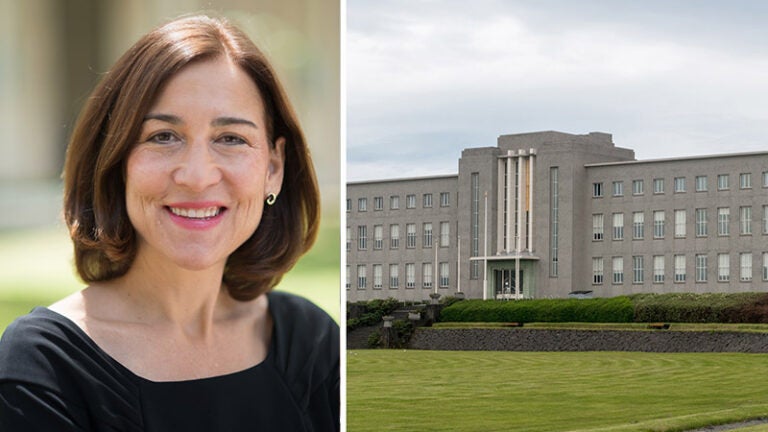
Legal scholar wins Fulbright award to study the intersection of folklore and the legal system
The legal protection of folklore and its implications for certain branded products, including “Skyr” yogurt, will be the focus of the research of Alison Dundes Renteln, professor of political science, anthropology, public policy and law at the USC Dornsife College of Letters, Arts and Sciences, when she goes to the University of Iceland through a Fulbright Specialist Program award this May.
Renteln will collaborate with Valdimar Tr. Hafstein, professor of folkloristics/ethnology, and his colleagues on a project titled “Cultural heritage, cultural law, and human rights,” which examines how intellectual property law applies to foodways. For social science scholars, foodways are the cultural, social and economic practices relating to the production and consumption of food.
Renteln, who also holds appointments at USC Price School of Public Policy and USC Gould School of Law, studies international law, human rights and comparative legal systems. She also is an expert on cultural rights, a topic she writes about in her forthcoming book, International Human Rights: A Survey (Cambridge University Press, 2022), co-authored with Cher Weixia Chen of George Mason University in Virginia.
Her research project in Reykjavik combines her scholarship in law with another lifelong passion, food, a topic that she says is dear to her because of her upbringing in Berkeley, California, known by many as a food mecca.
“It was the city of the ‘gourmet ghetto,’ Alice Waters, and international cuisines,” Renteln says. “My father was a professor of anthropology and folklore, and my mother was keenly interested in gastronomy. She collected cookbooks from her travels with my father to distant lands.”
Renteln will look at how traditional Icelandic yogurt is marketed and sold under the Skyr name, which carries with it connotations of a thousand years of cultural heritage. As well as involving legal battles over trademark and patent in the international dairy market, she says, it also falls under “the IPR jurisprudence of geographic indications,” which regulates how traditional items, such as food, can be named based on where they are made. A famous example of this is the rule that only sparkling wine from the French region of Champagne may carry the eponymous name.
“Since graduate school, I have been intrigued by the legal protection of many forms of culture, such as folk medicine, folk music, folk art and recipes,” explains Renteln, who earned her JD from the USC Gould in 1991. “I’m intrigued by the question of why food products were regulated so that only items that were produced in certain places could use particular designations — tequila, Parma ham, feta cheese, etc. It is curious that the national identity of countries relies, to some degree, on the famous delicacies from the local cuisine.”
Renteln is one of more than 400 United States citizens who share expertise with host institutions abroad through the Fulbright Specialist Program each year. Recipients of Fulbright Specialist awards are selected based on academic and professional achievement, demonstrated leadership in their field and their potential to foster long-term cooperation between institutions in the U.S. and abroad.